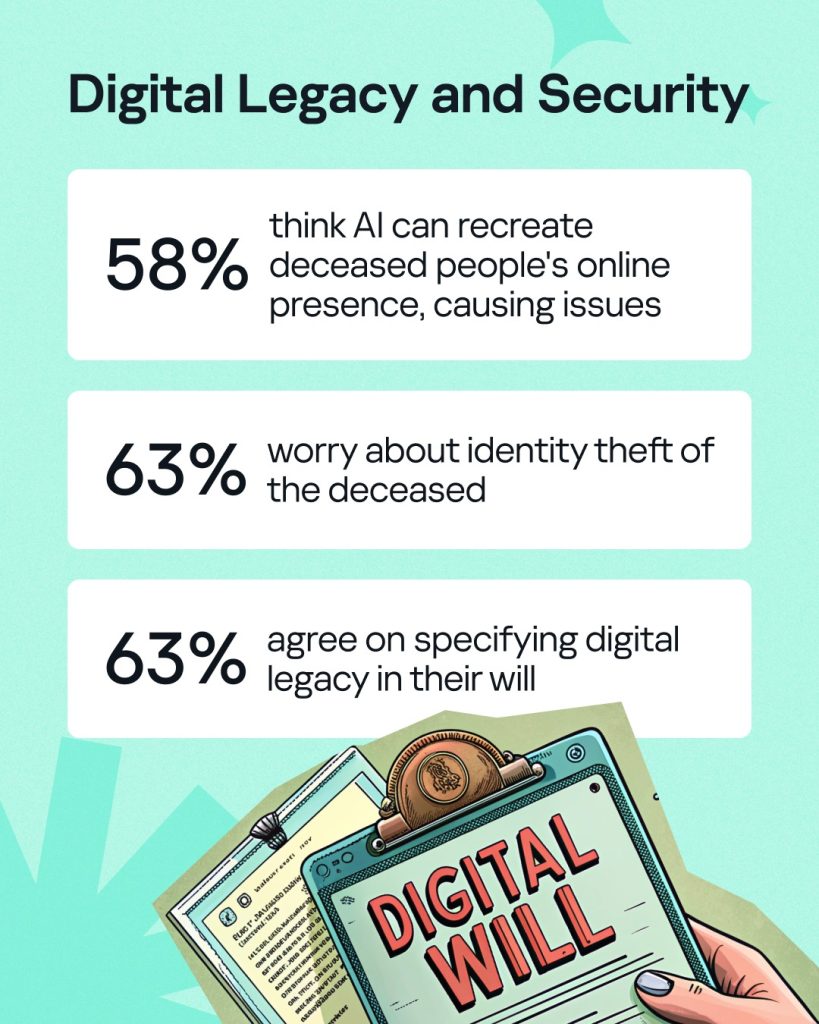ISLAMABAD: A recent study titled “Excitement, Superstition, and Great Insecurity – How Global Consumers Engage with the Digital World” revealed significant concerns about the vulnerability of digital identities, particularly those of deceased individuals.
The study shows that 61% of consumers believe deceased identities are especially at risk of identity theft due to the lack of oversight over their online information.
Regarding the use of artificial intelligence (AI) to recreate someone’s online presence, 35% of respondents find it acceptable, while 38% disagree, highlighting ongoing debates about privacy and respect in the digital space.
The “Digital 2024 Global Overview Report” by Kepios finds that 95% of internet users engage with social media monthly, with 282 million new identities created between July 2023 and July 2024. As digital interactions grow and digital footprints expand, concerns about privacy, digital legacy, and ethical use of digital identities become more pressing.
The study also notes that more than half (58%) of respondents believe the online presence of deceased individuals could be recreated using AI.
Interestingly, 67% think that seeing images or stories about deceased individuals can be distressing for those who knew them closely. Meanwhile, 43% of consumers are confident that there is no time limit for finding every image, video, or voice recording ever published online about a person.
Given these concerns, 63% of respondents agree that individuals with an online presence should specify in their will how their data and social accounts should be managed after their death.
Anna Larkina, a web content analysis expert at Kaspersky, comments, “The issue of managing one’s digital footprint is often overlooked in daily online activities.

However, the survey results highlight a crucial point: many people are aware of the potential for stolen identities to cause significant issues for users or their loved ones. It is wise to take proactive measures to enhance privacy and protect digital identities.”
To bolster privacy, Kaspersky recommends using modern security solutions that allow users to monitor the data processed by apps and limit data collection as needed.
Since not all online services are transparent about their data practices, using an online privacy checker can help manage the amount of personal information shared.


























